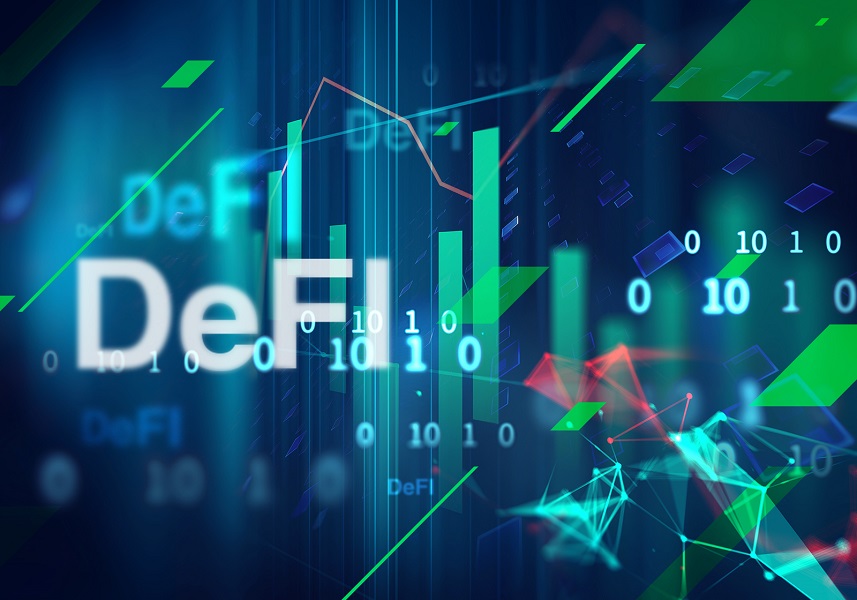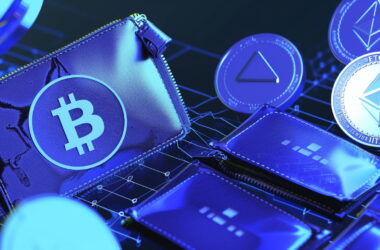In recent months, the decentralized finance (DeFi) market trended as the hottest thing in the cryptocurrency industry. Many cryptocurrency traders flooded to the DeFi market to grab mouth-watering profits through yield farming opportunities. Although many investors were able to legitimately cash out big-time from most of the DeFi protocols, some investors lost their capitals due to greed, lack of knowledge about the market, and protocol rug pulls.
Meanwhile, as the decentralized finance market continues to mature and flourish, new entries can avoid certain risks by learning about the ins and outs of the market, starting with the common terms used in DeFi, and also researching the related protocols or projects before investing in them. We will start by explaining decentralized finance and the popular terminologies used in the market.
DeFi in Brief
Decentralized finance – known as DeFi for short – is intended to mark the transition of centralized finance to peer-to-peer financial systems. DeFi is powered by decentralized protocols that run on Ethereum. The services offered in the decentralized finance market ranges from lending and borrowing of digital currencies. Currently, the decentralized finance market is worth over $12 billion, according to data from DeFi Pulse.
On this note, DeFi is regarded by many industry experts as one of the biggest sectors/markets in the cryptocurrency and blockchain space.
Complete List of Common Terms Used in DeFi
Noteworthily, some of the common terms used in DeFi are not entirely new to the cryptocurrency industry or investors. These terminologies include the following:
ATH
ATH is the abbreviation for “all-time high.” It is commonly used in both the decentralized finance and cryptocurrency market to reference the highest record an asset or digital currency has ever attained.
DeFi
As already explained, the term ‘DeFi’ means decentralized finance. This is arguably the most-used word in the industry.
DeFi Pulse
DeFi Pulse is a market analytics platform solely dedicated to the decentralized finance industry. It provides the value of all the assets locked in the market by analyzing several DeFi protocols in the industry.
DEX
DEX is among the common terms used in DeFi, which fully stands for decentralized exchange (DEXes as the plural form). As the name implies, this type of exchange allows the buying, selling, and trading of certain digital currencies in a decentralized manner, and it’s different from regular exchanges like Binance. This is because the decentralized exchange has no central authority involved, and most DEXes run on Ethereum, for instance, Uniswap.
ERC-20
ERC-20 token is very common in the decentralized finance market. Basically, they are designed to be mostly used on smart contracts built on Ethereum. ERC-20 standard tokens follow a certain kind of rule to be exchanged, shared, and moved to digital currency wallets. The majority of the DeFi compatible tokens are based on the ERC-20 standard.
Etherscan
Use this to check vital info about ERC20 projects. Etherscan is an explorer for the Ethereum blockchain. You can find tokens, addresses, prices, smart contracts, and view your account balance. This is one of the easiest ways to check the legitimacy of a coin. You can find the contract address, current holders, and distribution of coins. You should check the age of the code and whether it is an ERC20 generator like Bytecode, which could mean it was copy and pasted. If the code was written in the last week or two, I would be curious.
FOMO
FOMO is one of the common terms used in the decentralized finance and cryptocurrency market as well. FOMO simply means “fear of missing out.” Many cryptocurrency market players believe that the emotions of investors also influence market trends. This mostly happens when a particular investor to led to believe that there’s an opportunity in the market which he/she isn’t engaged in.
So, it is believed that an investor has been FOMOed into a project when he/she follows the crowd or hype about the project either on social media or elsewhere, in order not to miss out on the opportunity.
FUD
FUD is an abbreviation for “fear, uncertainty, doubt.” It is basically a general market term that refers to a disinformation strategy purported at changing the minds of investors about a certain market, DeFi protocol, or token, in a negative manner. An investor or a market player can possibly spread FUD or talk ill about a project to dissuade people from joining a DeFi project just because he/she lost interest in it.
Gas
Gas in decentralized finance or Ethereum refers to the fee needed to be paid to process a transaction on the Ethereum blockchain. The crypto community usually refers to “Gas” as the natural fuel powering Ethereum.
Liquidity
Liquidity is a very crucial factor in both the decentralized and crypto market. Liquidity can be considered as the ease with which a cryptocurrency or DeFi token can be converted to cash on demand without having a huge impact on the price of the crypto or token.
For context, a decentralized token, Axion (ANX), was recently exploited by a hacker, who drained about $500,000 worth of ANX. This wiped the token’s liquidity, thereby causing a 100% decline in the token’s price.
Oracle
An Oracle is a medium through which crypto, decentralized finance protocol, smart contracts, and tokens interact with data outside their chain. Oracles are a very important component fro smart contracts to function, as it provides a secure and reliable connection for these contracts to interact with real-world events.
Stablecoins
Stablecoins are one of the common digital currencies in the DeFi market. As the name implies, stablecoins are a certain type of digital currency which are pegged to the value of a real asset or currency. For instance, Tether (USDT) is a US dollar-backed digital currency, while PAX Gold (PAXG) is backed by Gold.
Token
Token simply refers to digital currency built on another blockchain network, unlike coins that run on their own blockchain, for example, Ether (ETH) and Bitcoin (BTC). We have ERC-20 tokens like Tether (USDT), Wrapped Bitcoin (WBTC), etc., which were built on the Ethereum blockchain.
Uniswap
Uniswap is one of the common terms used in DeFi market, which an investor must know. Uniswap is basically the leading decentralized exchange in DeFi. This is where DeFi investors mostly go to swap or list their token in the decentralized finance market. Currently, it is the largest protocol in the decentralized finance market by the total value of assets locked.
Uniswap has about $2.08 billion in assets locked, holding about 23.12% of the market, according to DeFi Pulse.
We will update this guide regularly as we learn relevant and common terms used in DeFi market. You can equally shill us some words.




